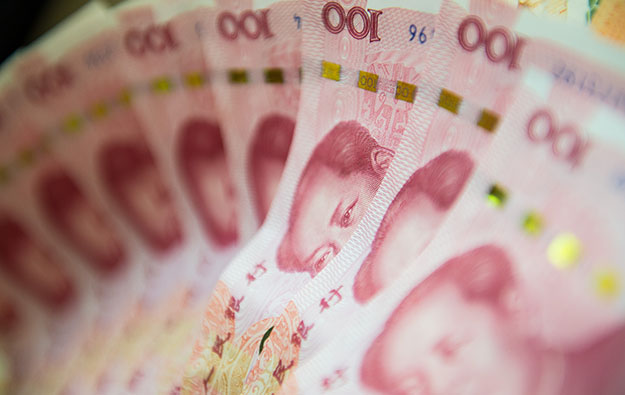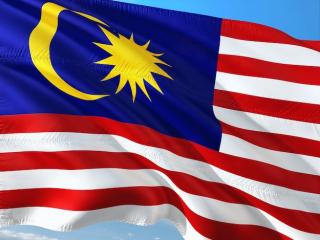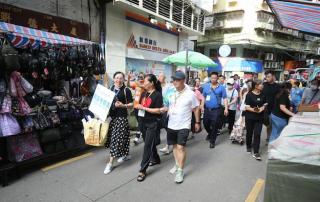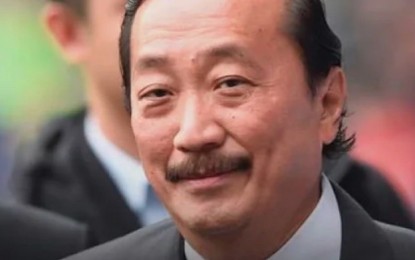Jury out on China reserve ratio cuts aiding Macau gaming
Jan 11, 2019 Newsdesk Latest News, Macau, Top of the deck

The imminent intention of China’s central bank to cut the national banking system’s reserve requirement ratio (RRR) twice in a calendar month might possibly prove positive for Macau’s gaming sector, several industry observers remarked to GGRAsia.
But an economist suggested to us the long-standing link between mainland China capital liquidity and expansion of Macau gross gaming revenue (GGR) was not as strong as it had been in the past.
In banking systems across the world, the reserve requirement ratio – usually mandated by a country’s central bank – sets the minimum amount of reserves that must be held by a commercial bank operating in that jurisdiction. Cutting the amount that must be held in reserve can act as an economic stimulus, by freeing money so that it can potentially be offered by banks to their customers in the form of loans or other credit.
China nonetheless maintains significant restrictions on cross-border movement of capital, including between the mainland and the country’s two Special Administrative Regions, Macau and Hong Kong, and in recent years national and local authorities have shown heightened vigilance regarding enforcement of those rules.
The People’s Bank of China (PBOC) had announced on January 4 that it planned to cut the RRR twice this month – once on January 15 and again on January 25 in equal parts, for an aggregate reduction of 100 basis points.
The move would release a net CNY800-billion (US$116-billion) of “long-term capital”, so that it could be “effectively increasing loan funding sources for small and micro businesses, private enterprises and other entities in the real economy”, the Chinese central bank said in a separate official statement.
“Generally speaking, we would expect there to be an eventual, although unquantifiable, benefit to Macau when the RRR is lowered. As more liquidity enters the system in China, some of this should find its way to Macau’s VIP segment in particular,” Union Gaming Securities Asia Ltd analyst Grant Govertsen remarked to us in an emailed comment.
Liquidity link weaker
Ricardo Siu Chi Sen, a professor in business economics at the University of Macau, reckoned that if the PBOC’s reserve requirement ratio cut helped stabilise China’s economic growth, it might be “helpful” in reducing the “uncertainties faced by the city’s gaming sector” this year.
“In particular, growth in the mass-gaming market and non-gaming tourism sectors might be secured,” explained Mr Siu, clarifying that mainland Chinese consumers’ propensity to travel and to spend money on gaming activities might possibly be encouraged by any relaxation by China in terms of monetary policy.
But he also suggested to us in an email that the correlation between mainland China capital liquidity and Macau GGR was not as strong as it once had been, particularly in the VIP gambling segment.
“This relationship has weakened significantly since 2014 when the Beijing government introduced serious measures to check the funds flowing out from the mainland.”
The scholar added: “For this reason…I may not anticipate that it [lowering the RRR] may push up Macau’s gaming sector significantly as before.”
Macau’s gaming industry experienced a contraction in GGR 2014 to 2016, which some investment analysts said was linked to China’s anti-corruption campaign; some moderation in China’s economic growth; and a reduction in liquidity and a tightening of credit in Macau’s junket system.
Mr Siu told us he did not anticipate Macau’s VIP sector would benefit significantly from China’s expected upcoming cuts to the reserve requirement ratio.
“I may see only a low likelihood, or some – but not necessarily significant – stimulation to Macau’s VIP gaming sector,” Mr Siu stated.
“After 2014′s serious adjustments,” affecting Macau gambling and taken “by the Beijing government, it may not make much sense if it would allow again a large outflow of money from the mainland to Macau for heavy (VIP) gambling. That would lower the effectiveness of the purpose of the expansionary monetary policy to stabilise or stimulate the mainland economy in this period of time,” the scholar added.
Related articles
-
 Macau govt now wants ban on junkets...
Macau govt now wants ban on junkets...Dec 15, 2023
-
 China body blocks US$277mln...
China body blocks US$277mln...Aug 11, 2023
More news
-
 Tan of Berjaya denies talks on second...
Tan of Berjaya denies talks on second...Apr 26, 2024
-
 Indonesia to have task force against...
Indonesia to have task force against...Apr 26, 2024
Latest News
Apr 26, 2024
The Edge financial news outlet reported on Friday a statement on behalf of Malaysian businessman Vincent Tan of lottery specialist Berjaya Corp Bhd, describing as “inaccurate” reports of talks on...Sign up to our FREE Newsletter
 (Click here for more)
(Click here for more)
Pick of the Day
"With our ambition to be the leading gaming platform for the regulated online real money gaming industry, the addition of NeoGames to our team advances our strategy to build global scale and capability"
Trevor Croker
Chief executive of Aristocrat Leisure
Most Popular
 Malaysia govt mulls nation’s 2nd casino says report April 25, 2024
Malaysia govt mulls nation’s 2nd casino says report April 25, 2024  Capella brand for new hotel at Galaxy Macau, open mid-2025 April 25, 2024
Capella brand for new hotel at Galaxy Macau, open mid-2025 April 25, 2024  Malaysia PM denies nation looking at second casino April 25, 2024
Malaysia PM denies nation looking at second casino April 25, 2024  Mainlanders still spend in Macau at hols: commentators April 25, 2024
Mainlanders still spend in Macau at hols: commentators April 25, 2024






